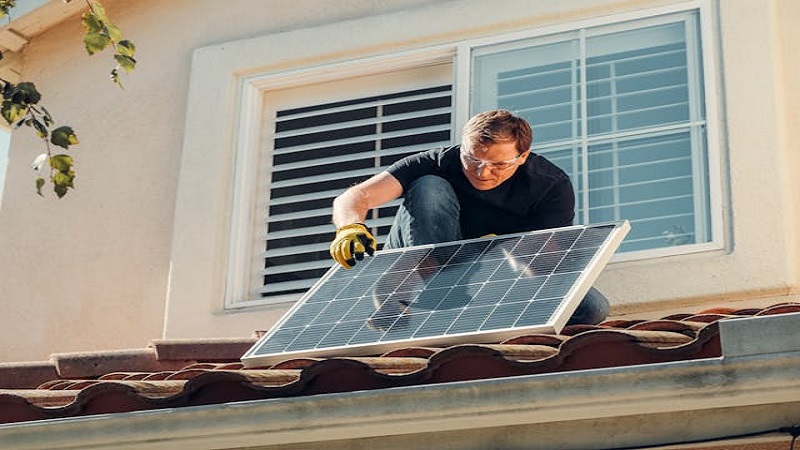Maintaining a comfortable indoor environment is essential for every home, and your HVAC (Heating, Ventilation, and Air Conditioning) system plays a major role in achieving that comfort. However, if your HVAC system is not properly maintained, it can consume excess energy, increase monthly utility bills, and fail to perform efficiently. The good news is that with a few simple maintenance steps, you can dramatically boost your home’s energy efficiency while extending the lifespan of your HVAC system.
This article provides practical HVAC maintenance tips to help you enhance indoor comfort, reduce energy usage, and save money. Whether you live in a warm, cold, or mixed-climate region, these tips apply to every type of household.
Why HVAC Maintenance Matters for Energy Efficiency
A well-maintained HVAC system can operate smoothly, consume less energy, and provide consistent temperature control. Here’s why regular maintenance is so important:
-
Improves system performance and distributes air more evenly.
-
Reduces energy consumption, lowering electricity and heating bills.
-
Prevents costly breakdowns by identifying issues early.
-
Extends equipment lifespan, delaying the need for replacement.
-
Enhances indoor air quality, reducing dust and allergens.
Energy-efficient HVAC systems also help reduce environmental impact by minimizing carbon emissions. With proper care, you ensure that your system doesn’t work harder than necessary.
Replace or Clean Air Filters Regularly
Air filter maintenance is one of the easiest yet most effective ways to improve HVAC energy efficiency. Dirty or clogged filters restrict airflow, forcing the system to work harder and consume more energy.
How Often Should You Change Filters?
-
Every 30 to 60 days for homes with pets or allergies
-
Every 90 days for average households
-
Every 30 days during high-usage seasons like summer and winter
Tip: Choose the Right Filter
Filters come with different MERV ratings that indicate their filtration strength. Higher isn’t always better—choose a filter suitable for your system to avoid overworking the unit.
Clean the Vents and Air Ducts
Dust, debris, and pet hair often accumulate in air ducts and vents, reducing airflow and decreasing energy efficiency. Clean vents every few months to maintain healthy airflow and prevent your HVAC from overworking.
Signs Your Ducts Need Cleaning:
-
Noticeable dust on vent covers
-
Mold or musty smell from vents
-
Uneven heating or cooling in rooms
-
Excessive dust inside the home
Keeping vents clear allows air to circulate properly and minimizes energy waste.
Inspect and Clean the Outdoor Unit
The outdoor condenser unit can easily collect dirt, leaves, and debris. If the unit becomes blocked, it struggles to release heat, making your HVAC system consume more energy.
Maintenance Steps:
-
Remove debris, branches, and leaves from around the outdoor unit.
-
Gently clean the condenser fins using a soft brush or vacuum.
-
Maintain a 2-foot clearance around the unit for proper ventilation.
Keeping the outdoor HVAC unit clean ensures smooth operation and prevents overheating.
Schedule Professional HVAC Tune-Ups Twice a Year
While DIY maintenance helps, professional inspections are essential. HVAC technicians can identify internal issues, perform deep cleaning, and optimize system performance.
What Professionals Usually Check:
-
Refrigerant levels
-
Thermostat performance
-
Airflow measurement and calibration
-
Electrical connections and wiring
-
Blower components and motor efficiency
The ideal schedule for professional tune-ups is once before summer and once before winter, ensuring your system is ready for peak performance during high-demand seasons.
Seal Air Leaks for Better Temperature Control
Air leaks around windows, doors, and vents make the HVAC system work harder as conditioned air escapes the home. Seal leaks to maintain stable indoor temperatures and reduce energy loss.
Where to Check for Air Leaks:
-
Around windows and door frames
-
Attic hatch and basement walls
-
Ductwork and vents
-
Electrical outlets and switch plates
Using weatherstripping or caulking is an inexpensive way to enhance energy efficiency.
Insulate the Home for Maximum HVAC Efficiency
Proper insulation reduces the system’s workload by preventing heat loss in winter and heat gain in summer. Well-insulated homes maintain temperature longer, reducing energy consumption.
Key Areas to Insulate:
-
Attic and ceiling
-
Walls and floors
-
Crawl spaces and basements
-
HVAC ductwork
Duct insulation is especially important to prevent air temperature loss as it travels through vents.
Use a Programmable or Smart Thermostat
A smart thermostat can automatically adjust temperature settings when you’re away or asleep, reducing energy waste. These devices help maintain home comfort while optimizing energy usage.
Energy-Saving Thermostat Tips:
-
Increase temperature by 2-4°F in summer when away
-
Decrease temperature by 2-4°F in winter when sleeping
-
Set schedules that match your daily routine
Smart thermostats provide long-term savings and more control over energy use.
Keep Air Registers Open and Unblocked
Some homeowners close vents in unused rooms thinking it will save power, but it can actually increase system strain. Your HVAC is designed to distribute air evenly—blocking vents disrupts the airflow and creates pressure imbalance.
Best Practice:
Ensure furniture, curtains, rugs, or boxes do not cover or block air vents. Keeping vents open helps maintain healthy airflow and system performance.
Check Refrigerant Levels in AC Systems
Low refrigerant levels reduce cooling efficiency and cause the system to run longer, increasing energy bills. If you notice the AC isn’t cooling effectively, there may be a refrigerant leak.
Warning Signs:
-
AC running constantly
-
Higher energy bills in summer
-
Air not cooling as expected
-
Ice buildup on refrigerant lines
Only a trained technician should handle refrigerant checks or refills.
Use Ceiling Fans to Support Your HVAC
Ceiling fans do not change room temperature, but they circulate air to help maintain comfort. This reduces the demand on HVAC units.
-
Summer: Set fan to rotate counterclockwise for a cooling effect.
-
Winter: Set fan clockwise to push warm air downward.
Using fans allows you to adjust the thermostat by 2–3°F without feeling discomfort.
Maintain Proper Humidity Levels
Humidity impacts comfort and HVAC efficiency. When humidity is high, the air feels warmer, causing AC systems to work harder. Using a dehumidifier in summer and a humidifier in winter can reduce HVAC workload.
Ideal Humidity Range:
30–50% for indoor living spaces.
Balanced humidity improves air quality, protects furniture, and boosts energy efficiency.
Upgrade to Energy-Efficient HVAC Components (When Needed)
Although the goal is to maintain existing systems, upgrading old or inefficient parts can significantly enhance performance. Consider replacing outdated components if they frequently break down or consume too much energy.
Possible Upgrades:
-
High-efficiency blower motor
-
Variable-speed HVAC unit
-
Energy-efficient furnace or heat pump
Before replacing equipment, assess if repairs or upgrades are more cost-effective.
Monitor Your Energy Usage
Keeping track of monthly energy bills helps identify performance issues early. Sudden spikes in energy consumption often indicate HVAC inefficiency.
How to Monitor Usage:
-
Compare monthly utility bills year-over-year
-
Use a home energy monitoring device
-
Track thermostat usage history
This makes it easier to detect leaks, mechanical issues, or changing efficiency.
Final Thoughts
Boosting home energy efficiency starts with proper HVAC maintenance. Simple tasks such as cleaning filters, sealing leaks, and scheduling regular tune-ups can significantly improve system performance and reduce energy costs. Consistent maintenance not only enhances indoor comfort but also extends the lifespan of your HVAC equipment and contributes to a healthier living environment.
With the tips provided above, you can create an energy-efficient home that consumes less power, offers greater comfort, and saves you money year-round.

